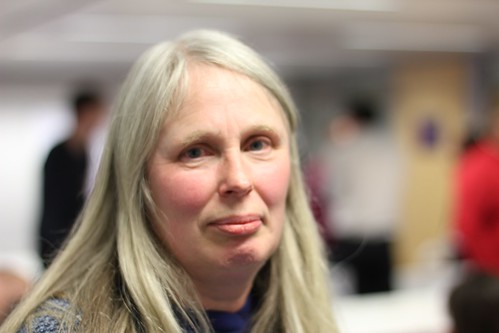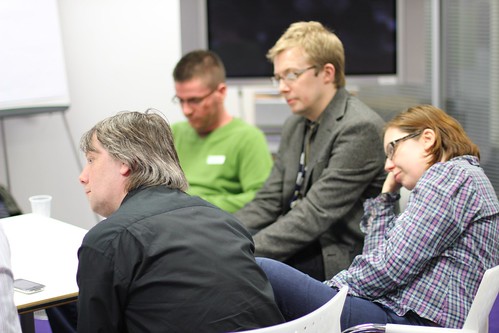The first table was covering issues of controversy (how to deal with) accuracy and the news agenda – or the broader question of who news is it? Nick Booth took these slightly sketchy notes

Diane Smith has used the social network Stafford Direct to starts to challenge the way the mainstream media was telling the Story of the enquiry into deaths at the local hospital. Below she explains what she ste out to do – why she felt the mainstream media was getting things so wrong and what keeps here going:
Ian Little of the Tenbury Wells blog said the reason he got into blogging was the town council was not very transparent with closed meetings – local paper would cover the council from one point of view, my stories tended to be from the opposite point of view.
Should stuff be edited or not? Read more

